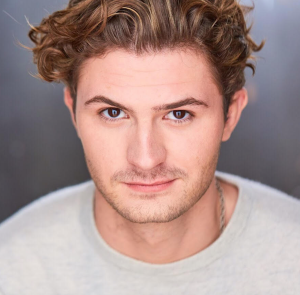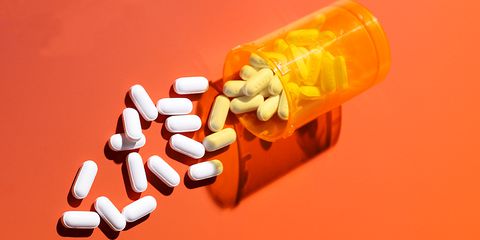It all started in seventh grade. You know the story; disorganized, somewhat disruptive in class, incessant foot-tapping… all the tell-tale signs of ADHD.
So I was taken to a doctor, then a pharmacy, and suddenly a little blue and orage pill was added to my breakfast plate. 70mg of Vyvanse, every morning, and all the little idiosyncrasies began working themselves out.
As I progressed through school, my dependency on the pill grew. By the end, a day of school without it was unthinkable. I remember once I actually left school during second period because I realized I had forgotten to take my pill, figuring the day would be a wash without it.
I never stopped to consider what was actually in the pill, or what it actually did. I just knew that taking it meant I was normal.
Vyvanse is the brand name for a drug called Lisdexamfetamine (Adderall is a brand name too, FYI. As is Ritalin, Concerta… you get the idea). You probably noticed the suffix “amphetamine”. Amphetamines have, for most of human history, been used as recreational aphrodisiacs and euphoriants. They are also incredibly addictive, as you would know if you’ve ever seen an episode of Breaking Bad.
Oh, and I was taking the highest legal dose. 70mg of amphetamine, every morning, for seven years.
And then I stopped.
It happen back in February, after I made a bet with my mom; I would go the whole month without cigarettes if she would do it without sugar. This led me to a conversation about sobriety with one of my friends, and he mentioned that if I really wanted to be sober I’d have to stop taking Vyvanse. This hadn’t occurred to me, but after some cursory internet research, I saw that he was right.
I hadn’t been completely sober for more than a week since I was twelve-years-old.
In the three months since getting off the Vyvanse, I’ve noticed two things; my creative and artistic impulses are stronger and more genuine than ever before and I’m suffering through withdrawal. For the first few weeks, I found it an ordeal to get out bed before noon. I was so used to rolling over and popping my pill, and then waiting a few minutes for the sudden burst of energy! I was also having random mood swings, and was procrastinating a ton.
But even with the side effects of quiting, I’ve taken tremendous strides towards becoming the person, and the artist, that I want to be. I’ve grown so much more in touch with myself by removing that artificial barrier. The drug was prescribed to help me acquiesce to the rigid demands of school, but life is different. In life, you get to decide who you want to be, and you have to understand yourself in order to do that.
I want to clarify; I’m not saying that I think anyone taking meds should go off them. I’m not even saying anyone taking amphetamines should go off them. All I’m saying is that if you’re like me, the decision to go ON them was never really a conscious choice, and it definitely should have been. Withdrawal is hard, but it’s not as hard as getting to the end of life and realizing you never really knew yourself.
24 percent of college students in America use amphetamines. Over half a million kids under the age of 17 have a prescription for one. It’s too much of something too addictive, to people who are too young.
If that many kids need a schedule 1 drug to make it through school, then the problem is with our schools, not with our youth. If I ever take an amphetamine again, I’ll at least make sure I know what I’m getting into.


